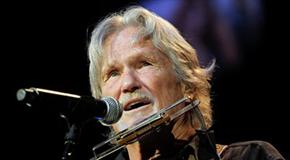Ryman Auditorium Getting New Stage After 61 Years
Scuffed by the heels of “The King,” ‘‘The Queen of Soul” and thousands of singers in cowboy boots, scarred by an uncountable stream of road cases and worn by six decades of music history, the Ryman’s oak floorboards have reached the end of a very long, very successful run.
“That stage has had a wonderful life,” said Steve Buchanan, senior vice president of media and entertainment for Gaylord Entertainment, owners of the Ryman.

The current stage is just the second in the 120-year history of the “Mother Church” after the original was installed in 1901 for a performance of the Metropolitan Opera. It was laid down in 1951 and has lasted far longer than expected. The stage was refinished during a renovation in 1993-94 and even then officials knew it would be the last resurfacing. Today it’s heavily scuffed and scarred, its age easily visible from the Ryman’s balcony.
The Ryman is still the building most associated with The Grand Ole Opry, though it moved to the Opry House in 1974, and has hosted a number of significant moments in American culture.
Dylan recently returned, more than 40 years after Nashville Skyline. Taylor Swift sang there recently with her good friends, The Civil Wars. Even the heaviest of rockers get a little nostalgic, like Josh Homme of Queens of the Stone Age, who said it was an honor to get drunk while performing in the building last year.
Keith Urban, making his return from vocal surgery, will be among the last performers on the stage when the Opry plays its final winter date Friday at The Ryman. Dierks Bentley will play the last standalone concert Thursday.
As a young, aspiring performer in Nashville more than a decade ago, Bentley would run his fingers along the building’s brickwork late at night as he walked home from performing on Lower Broadway, daydreaming of playing on that stage. He calls it “one of the most precious places in Nashville and in country music to me.”
“The significance of that stage and who played there before me will definitely be in the back of my head all night,” Bentley said in an email. “As a member of the Grand Ole Opry, I couldn’t be any prouder.”
That a busy venue needs a new stage is not necessarily news. The stage at the Opry’s permanent home, for instance, has been changed multiple times over the years with little comment. But when the Ryman stage is replaced, officials in some sense are altering an icon that is closely watched by sometimes vocal guardians of its cultural significance.
Officials are prepared for questions. They point out the building has gone through many upgrades over the years and that each step was vital to preserving the building. Most recently the roof was replaced in 2009.
“We’re not in the business of getting rid of old things just to get rid of them,” Ryman general manager Sally Williams said.
They will retain an 18-inch lip of the blonde oak at the front of the stage, similar to the way the Ryman stage was commemorated in a circle of wood at the new Opry House. The rest of the stage will be stored and replaced with a medium brown Brazilian teak that will be far more durable and camera friendly.
Beneath the stage, the original hickory support beams will be kept and reinforced with concrete foundations, crossbeams and joist work that will help triple the stage’s load capacity.
Work will begin Feb. 4 and continue seven days a week until Feb. 20, when rising country stars The Band Perry will make its Ryman debut with a sold-out show. Tours will continue throughout the work, allowing members of the public to watch.

Williams says she’s gotten no negative feedback as word has spread because everyone understands the importance of the project.
“I think it will be interesting because I think it’s obvious we’re doing something ensuring that people will be coming here and having those Ryman moments in 120 years,” she said.
 Daily Pulse
Subscribe
Daily Pulse
Subscribe

